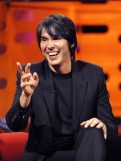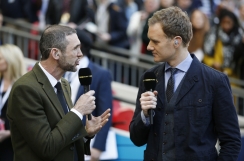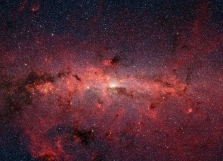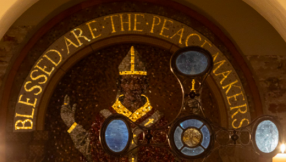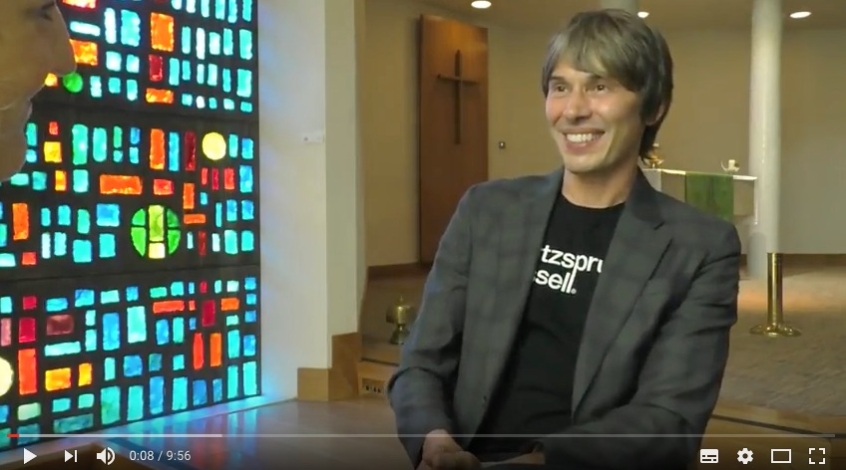
Prof Brian Cox has called for believers and non-believing scientists to acknowledge each others' contribution to human beings' search for meaning and to avoid "toxic" dismissals of different worldviews.
Interviewed at a Diocese of Leeds clergy conference where he shared a platform with Prof David Wikinson, principal of St John's College, Cox – a physicist with a high public profile thanks to his popular TV science documentaries – said that while he had no personal faith he rejected the label of "atheist" because he refused to be "pigeon-holed".
In his address he spoke of cutting-edge theories of multiple or even infinite universes, and the implication of these theories for the quest for meaning. He said faith and science do not have to be in opposition. Cox quoted the Belgian priest and professor of physics George Lemaître, who proposed the theory of the expansion of the universe, who said: "There are two paths to truth and I decided to follow both of them."
In an interview for the diocese's website, Cox spoke of the multiverse theory, which postulates many different universes. He said: "If that turns out to be correct – and this is right at the edge of our current understanding, but let's say it turns out that there are an infinite number of universess, so all possibilities of the mixtures of the laws of nature exist, and in some universes there'll be stars and galaxies, in others there won't, what does that mean?
"Well, meaning is something that scientists alone are not qualified to extract from the world. This is where art and music and philosophy and theology live, and not only have a role to play but are an essential part of our discussion – what do these discoveries that we make mean? How are we to respond to them as human beings?"
He said that exploring such questions was "part of the tradition of the Church, part of the tradition of different religious beliefs across the world". Creation stories are "common across every culture and every geographical corner of the world. Where you find human beings you find creation stories, so that tells you something about what it means to be human."
He hit out at the "polarisation of debate" in today's society between people of different worldviews. "You see it in politics, you see it in the interaction between religions, and you see it in the interaction between religion and the secular world, you see it all over the place," he said. "There seems to be a driving apart of people with diffferent views and a ghettoisation of different worldviews.
"The analogy I would draw is with a multi-party democracy... That implies that you accept and celebrate the fact that there are people with whom you disagree."
He added: "This idea that there's this lot over here and this lot over here and we disagree and it gets more and more ghettoised and we get a louder argument, is toxic.
"So for me, the idea I would be able to have an entertaining and enjoyable afternoon discussing with people with whom I suppose I have to say I disagree at the most fundamental level, because I don't have a particular faith, or any faith in fact – however, I think that difference of opinion and view of the world is to be celebrated and explored."
There was, he said, "no room for dogmatic positions" in science. "I think the fundamental principle in science is that we start from a fundamental position of ignorance.
"And that means we take delight in being shown to be wrong, and furthermore we do not assume that we're right."
Cox said he rarely considered religion except when he was asked about it, but said: "I don't class myself as an atheist – I hate the label, partly because of what I've just said – I don't like the ghettoisation of thought and worldview, I think it's entirely toxic."
Asked to define the idea of "wonder", he said: "Wonder is noticing that there's something beautiful and worth exploring about nature, and that's the act of wonder, and then you go off to explore it in whatever way you choose.
"If you really want to understand how a blade of grass works the only way you're going to do it it is by doing science, you won't do it by contemplating it. But there are responses to the universe – a piece of art is a reponse, music is a response, theology and philosophy are responses, but the inital act of being interested and noticing something that's worth exploring is what I would define as wonder, and that's common."










